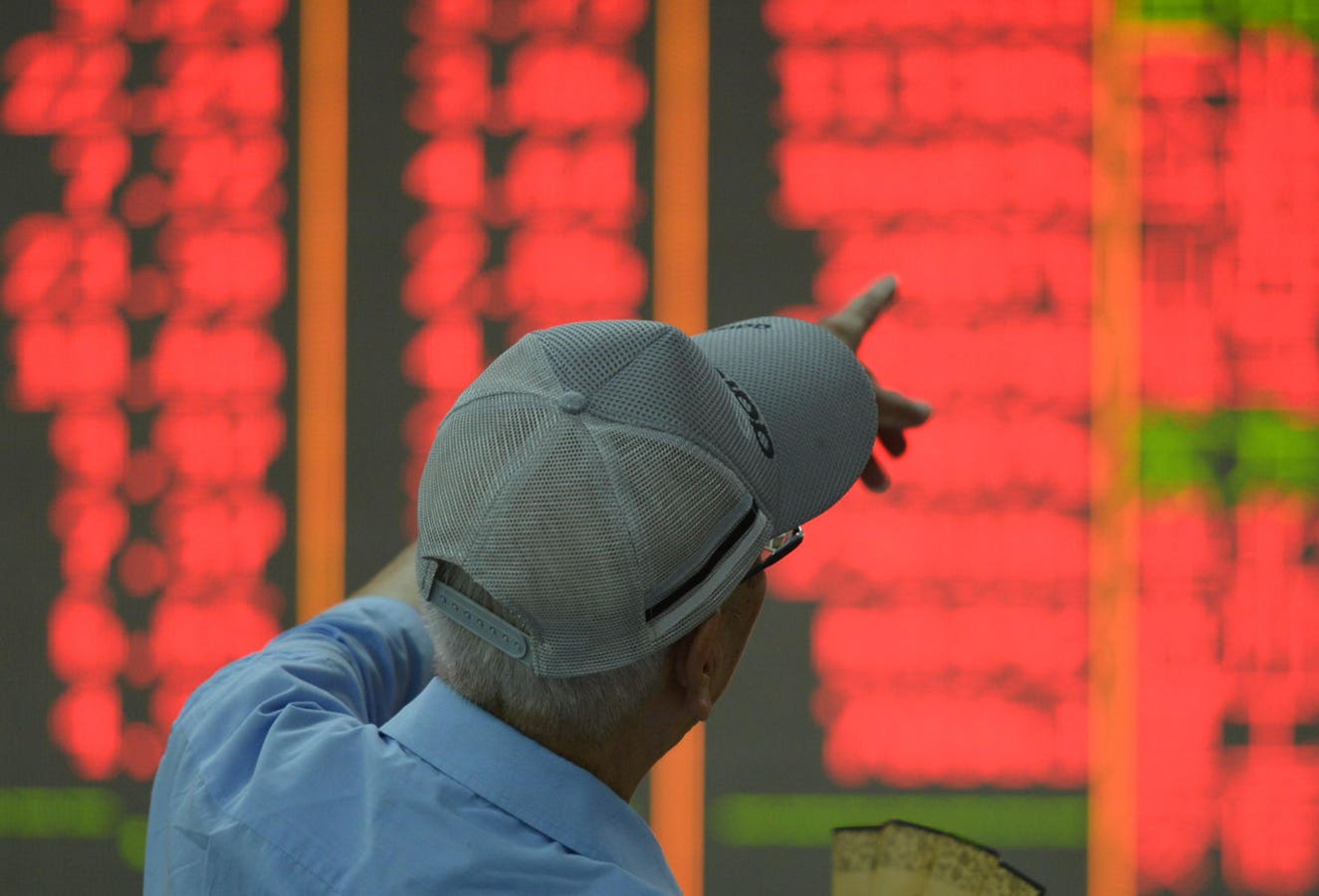A customer points to rising figures at a stock exchange in Hangzhou on September 27 after the central bank announced stimulus measures for the economy.
Costfoto/NurPhoto via Getty Images)
Chinese stocks may continue to be volatile—with some analysts predicting a shuddering fall when markets open next week—after a highly anticipated briefing by the Ministry of Finance on Saturday didn’t provide specifics on future stimulus to the world’s second-largest economy.
Analysts say that Finance Minister Lan Fo’an did try to send positive signals by stressing that China has a lot of room to borrow and increase its fiscal deficit, which was set in March at a modest 3% of GDP for this year. To support the economy, increased borrowing may come from what Lan described as an one-off “relatively large” increase in debt, which analysts said might mean issuing more bonds to help local governments pay off existing debt and increase spending in areas like social welfare and consumer subsidies.
Lan also said China will issue special sovereign notes to help its state-run banks replenish capital. He mentioned plans to address China’s prolonged property crisis as well. According to Lan, local governments will be allowed to use bonds to buy unsold homes and convert them into affordable housing. Amid the country’s real estate slump, as many as 90 million housing units may stand empty, hurting the country’s troubled developers.
But Lan stopped short of announcing the exact size of any new stimulus program. While that might have been due to the internal workings of the Chinese government, with any such plans probably subject to approval by a meeting of legislators later this month, investors expecting details are likely to be disappointed.
“On the one hand, it is clear that stimulus will come,” says Alicia Garcia Herrero, a Hong Kong-based chief Asia Pacific economist at French investment bank Natixis via WeChat. “On the other hand, it is not clear how big it would be and certainly whether it will affect households directly.”
Shen Meng, a Beijing-based managing director at boutique investment bank Chanson & Co., says via WeChat that investors in Chinese stocks are likely to sell instead of taking a wait-and-see attitude. He says the language used by the minister won’t shore up confidence, which was shaken by an Oct. 8 briefing by the National Development and Reform Commission that also didn’t offer specifics on stimulus measures.
Such lack of specificity has resulted in wild swings on stock markets. On Wednesday, the benchmark CSI 300 index of Shanghai and Shenzhen-listed companies tumbled more than 7%, ending a previous rally provoked by September announcements of greater-than-expected economic support measures. But investors have since grown impatient for concrete details.
Guo Shan, a Shanghai-based partner at research firm Hutong Research, estimates via WeChat that this year’s stimulus program might involve issuing 1 trillion yuan ($140 billion) in special sovereign notes and 2 trillion yuan in special local government bonds to help with debt repayment. In an Oct. 9 note, Nomura economists led by Lu Ting wrote that China also needs to increase its revenue transfer to local governments, spend hundreds of billions of yuan more each and every year to help people with lower incomes, increase pension payment and encourage couples to have children.
“In our view, Beijing will likely roll out a raft of fiscal measures and other supportive policies over the next several months, but it did not have a comprehensive fiscal plan ready when it presented its large monetary stimulus package on 24 September,” the economists wrote. “The eventual scale and content of the fiscal package could be quite improvised due to the brewing stock bubble and still-controversial debates over the appropriate focus of the central government when increasing spending.”


